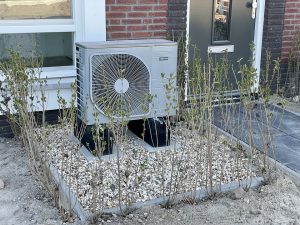Heat pumps are versatile and energy-efficient systems that provide heating and cooling for your home. They transfer heat energy from one place to another, using a refrigerant to absorb and release heat. In the winter, heat pumps extract heat from the outdoor air and move it indoors, while in the summer, they transfer heat from indoors to outdoors, effectively cooling your home.
Table of Contents
Types of Heat Pumps
There are three main types of heat pumps:
- Air-source heat pumps: The most common type, these units use the outside air as the heat source or sink.
- Ground-source heat pumps (geothermal): These systems rely on the relatively stable temperature of the ground or a water source to provide heating and cooling.
- Water-source heat pumps: These units use a water source, such as a lake or pond, as the heat source or sink.
Common Heat Pump Problems
Insufficient Heating or Cooling
If your heat pump isn’t providing enough heat or cooling, it may be due to a clogged filter, low refrigerant levels, or a malfunctioning thermostat.
Strange Noises
Unusual noises from your heat pump could indicate problems with the motor, fan, or compressor. These issues may require heat pump installation sacramento county professional attention.
Leaking Fluids
Refrigerant leaks are a common heat pump issue. If you notice fluid leaks around your system, it’s essential to call a professional, as refrigerant can be hazardous.
Frozen Components
Heat pumps can sometimes freeze up during cold weather. This can be caused by a lack of airflow, low refrigerant levels, or a malfunctioning defrost cycle.
DIY Heat Pump Repair
Troubleshooting Tips
Before attempting any repairs, consult your owner’s manual and follow these basic troubleshooting tips:
- Check the thermostat settings and batteries.
- Inspect the air filter and clean or replace it as needed.
- Make sure the outdoor unit isn’t blocked by debris or snow.
Basic Maintenance Tasks
Regular maintenance can help prevent many heat pump problems. Tasks you can perform yourself include:
- Cleaning the outdoor unit and removing any debris.
- Inspecting and cleaning the indoor air handler.
- Checking and tightening electrical connections.
When to Call a Professional
Signs It’s Time for Professional Help
Some heat pump issues require the expertise of a professional technician. CPI Plumbing & Heating, who provide heat pump repair in Mount Vernon told us that there are some signs that it’s time to call for help:
- Persistent or worsening strange noises.
- Persistent insufficient heating or cooling, despite basic troubleshooting.
- Leaking refrigerant or other fluids.
- Frozen components that don’t thaw with simple fixes.
- Electrical problems, such as circuit breaker trips or burnt wires.
Choosing the Right Repair Service
To ensure the best possible service for your heat pump repair, consider the following factors:
Licensing and Certifications
Look for a repair service with proper licensing and certifications. Technicians should be certified by organizations such as North American Technician Excellence (NATE) or the Refrigeration Service Engineers Society (RSES).
Experience and Reputation
Choose a company with a solid track record and positive customer reviews. Don’t hesitate to ask for references or check online review sites for feedback.
Pricing and Warranties
Get multiple quotes and compare prices, but don’t automatically choose the cheapest option. Make sure the repair service offers a warranty on their work to protect your investment.
Conclusion
Heat pump repair is an essential aspect of maintaining your home’s comfort and energy efficiency. By understanding the basics of heat pump operation, common issues, and DIY maintenance tasks, you can keep your system running smoothly. However, when you encounter more serious problems or need professional assistance, use the tips provided to find the right repair service. With the proper care and attention, your heat pump will continue to provide reliable heating and cooling for years to come.
FAQs
How often should I have my heat pump serviced?
- A professional should inspect and service your heat pump at least once a year to ensure optimal performance and prevent potential problems.
How long does a heat pump last?
- The average lifespan of a heat pump is 10-15 years. With regular maintenance and proper care, it may last even longer.
Can I use my heat pump during extremely cold weather?
- Air-source heat pumps can lose efficiency as the temperature drops, but most modern systems can still provide heat in temperatures as low as -20°F. Ground-source and water-source heat pumps are not as affected by cold temperatures.
What is a dual-fuel heat pump system?
- A dual-fuel heat pump system combines an air-source heat pump with a gas or oil furnace. This setup allows the heat pump to provide heating during milder temperatures and switches to the furnace when the temperature drops further, maximizing efficiency and comfort.
Are heat pumps energy-efficient?
- Yes, heat pumps are generally more energy-efficient than traditional heating and cooling systems, as they transfer heat rather than generate it. This can result in significant energy savings and reduced utility bills.
